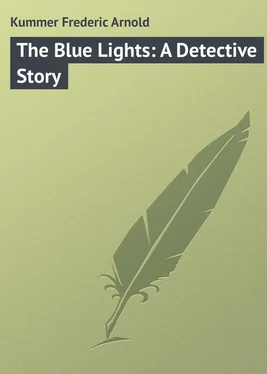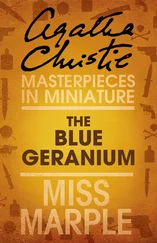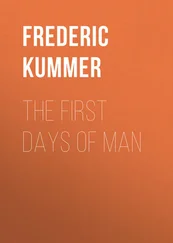Frederic Kummer - The Blue Lights - A Detective Story
Здесь есть возможность читать онлайн «Frederic Kummer - The Blue Lights - A Detective Story» — ознакомительный отрывок электронной книги совершенно бесплатно, а после прочтения отрывка купить полную версию. В некоторых случаях можно слушать аудио, скачать через торрент в формате fb2 и присутствует краткое содержание. Жанр: Классический детектив, foreign_detective, foreign_prose, на английском языке. Описание произведения, (предисловие) а так же отзывы посетителей доступны на портале библиотеки ЛибКат.
- Название:The Blue Lights: A Detective Story
- Автор:
- Жанр:
- Год:неизвестен
- ISBN:нет данных
- Рейтинг книги:4 / 5. Голосов: 1
-
Избранное:Добавить в избранное
- Отзывы:
-
Ваша оценка:
- 80
- 1
- 2
- 3
- 4
- 5
The Blue Lights: A Detective Story: краткое содержание, описание и аннотация
Предлагаем к чтению аннотацию, описание, краткое содержание или предисловие (зависит от того, что написал сам автор книги «The Blue Lights: A Detective Story»). Если вы не нашли необходимую информацию о книге — напишите в комментариях, мы постараемся отыскать её.
The Blue Lights: A Detective Story — читать онлайн ознакомительный отрывок
Ниже представлен текст книги, разбитый по страницам. Система сохранения места последней прочитанной страницы, позволяет с удобством читать онлайн бесплатно книгу «The Blue Lights: A Detective Story», без необходимости каждый раз заново искать на чём Вы остановились. Поставьте закладку, и сможете в любой момент перейти на страницу, на которой закончили чтение.
Интервал:
Закладка:
"Have you no one under suspicion?"
"No one. The nurse, Mary Lanahan, is of course being closely watched; also the chauffeur, François. My men report, however, that he gave them the slip for an hour, last night. I have an idea that he may prove to be the one who took the cigarettes."
"Can you imagine any reason for his having done so?"
"I confess, my child, that I cannot. It seems utterly absurd; unless, indeed, there was something else concealed in the box."
"What?"
The Prefect laughed. "I cannot imagine. But if you can identify the man, we shall no doubt find out. As for the matter of Alphonse Valentin, we have already had him under observation. So far as we can learn, he is merely a chauffeur, out of work, who seems to be somewhat in love with the nurse."
"Then his actions have not been suspicious, during the past week?"
"Not in the least. He has hung around the Stapleton house for several days, asking for news of the Lanahan woman; but that is all. We attribute his actions to a natural anxiety over her illness."
Grace left the house, by no means satisfied with the progress she was making. Her interview with Mary Lanahan, and subsequent visit to the scene of the crime, told her nothing she had not already known. Her greatest disappointment, however, came when she had Mrs. Stapleton bring in François, ostensibly to question him about his part in the affair. She saw at once that he was not the man who had broken into Alphonse Valentin's room on the night before. This man had been heavily bearded and tall. François was smooth shaved and rather short. Mrs. Stapleton assured her that none of her servants resembled in the least her description of the burglar. She left the house, greatly dissatisfied, after satisfying herself that this was the case.
Her visit to the house of Alphonse Valentin that afternoon was productive of no greater results. The man was out. The woman who opened the door – the same one who had admitted her the previous evening – regarded her with ill-concealed suspicion, and informed her that she had no idea when her lodger would return. Grace left, determined to try again the following day.
Throughout the whole evening she hung about the Stapleton house, hoping again to see the man with the heavy beard who had disappeared within the night before; but he did not put in an appearance. Grace began to feel discouraged. She thought of her lilac bushes, at home, of Aunt Lucy feeding the chickens, of the dogs, the sweet call of the wood robins among the poplar trees on the lawn, and half wished that she had stayed at home and left to Richard the apparently hopeless task of finding the abductors of little Jack Stapleton.
What, after all, could she hope to do, where the entire police force of Paris had failed? The thing was absurd. Monsieur Lefevre had overrated her abilities. She heard the sound of church bells, striking the hour of ten, and decided to go home and forget the whole affair until tomorrow. Tomorrow – the day Richard must arrive! How she longed to be with him! This stupid interruption of their honeymoon seemed peculiarly cruel, now that over a week had elapsed since they had seen each other. She wondered if she would meet him, the next day. Then she thought of her changed appearance, of her hair, dyed a jet black, and worn in a new and to her mind unbecoming fashion, of her darkened complexion, her extremely French costume, her heavy veil, and laughed. If Richard did see her, here in Paris, when he fully believed her to be peacefully tending her flower beds at home, he would never believe the evidence of his senses.
She was strolling toward the Champs Élysées, lost in thought, when suddenly she heard the soft throbbing of a high-powered motor car, as it came up the street behind her. She turned and glanced toward it; but the brilliant glare of the electric headlights blinded her. She could see nothing, except that the car was moving very slowly.
Suddenly it stopped, almost abreast of her, and a tall man leaped to the sidewalk. Before she had an opportunity so much as to glance in his direction, he came swiftly up behind her, threw his arm about her neck, and choked her into unconsciousness. Her last sensation was of being lifted bodily into the already moving car, and then the feeling of rapid motion, quickly blotted out by the coming of insensibility.
When she returned to consciousness, it was broad daylight. She lay upon a small wooden bed, in a low-ceilinged little room, the only furniture of which was a small chest of drawers and a chair. Upon this chair sat a large man, his face so thoroughly hidden by a mask that his features were quite unrecognizable. He was regarding her with keen scrutiny.
"Oh – what – where am I?" she gasped.
The man hesitated for a moment, then slowly spoke. "Where you are, mademoiselle, is of no importance. Attend to what I have to say."
Grace made no reply. There seemed nothing that she could say. She sat up and gazed at the man, half dazed. Her head swam. She felt that she had been drugged.
"Ten days ago," the man went on, in a cold and menacing voice, "the child of Monsieur Stapleton was taken from his nurse in the Bois de Boulogne. You are trying to find that child."
"But – " Grace made a movement of protest.
"It is useless to deny it. You have been watched."
Grace gasped in silence.
"I desire to send a message to the boy's father, and I have chosen you to take it to him. I have selected you, because to send one of my own men would doubtless result in his arrest. That is why you have been brought here."
"The – the child is safe?" asked Grace.
"Perfectly. You shall see for yourself." He motioned to the window.
Grace rose, and looked out. The view comprised a bit of garden, surrounded by bushes. She could see nothing beyond – nothing that would enable her in any way to identify the place. On the tiny plat of grass in the garden sat a child – a little girl, playing with a small black and white spaniel. Her dark hair was drawn tightly beneath a pink sunbonnet. Her dress, her whole appearance, was that of a peasant child.
Grace turned from the window, bewildered. "I see nothing," she said, "except a little girl – "
"That is the child of Monsieur Stapleton," the man said. "Now attend to the message."
She sat down again, wondering.
"Tell the boy's father this: He will leave his house tomorrow evening, in his automobile, at eight o'clock. He will bring with him, in a package, the sum of five hundred thousand francs – one hundred thousand dollars. He will have with him, in the automobile, no one but himself and his chauffeur. He will leave Paris by the Porte de Versailles, and drive along the road to Versailles at a speed of twelve miles an hour. Somewhere upon that road, among the many automobiles that will pass him, will be one, from which a blue light will flash, as it approaches him. It will also slow up. He will toss the package of bank notes into that car, and drive on. If the package contains the sum of five hundred thousand francs, he will find his child at his house, upon his return. If not, or if these instructions are not carried out to the letter – if there is any attempt made at pursuit – the child will not be there, and you can tell him that he will be given but one more chance. After that, the boy will die."
The man in the mask made this gruesome statement with the utmost coolness.
Grace listened, aghast at the cruelty of his words, and at the same time struck by the extreme ingenuity of the plan. To catch the perpetrators of the crime, under these circumstances, seemed impossible. A rapidly moving automobile – one of a hundred. An instant's flash of a blue light in passing – the tossing into the car of the money – and it would speed away into the darkness, beyond any hope of detection. Should Mr. Stapleton have others in his car – should he have his car followed by a second, containing armed men, the occupants of the kidnapper's machine would no doubt refuse to give the signal, and nothing would be accomplished. It would be impracticable to line the road, for a possible distance of twenty miles, with gendarmes, nor could their presence accomplish anything, beyond putting the kidnappers on guard, and preventing the carrying out of the plan.
Читать дальшеИнтервал:
Закладка:
Похожие книги на «The Blue Lights: A Detective Story»
Представляем Вашему вниманию похожие книги на «The Blue Lights: A Detective Story» списком для выбора. Мы отобрали схожую по названию и смыслу литературу в надежде предоставить читателям больше вариантов отыскать новые, интересные, ещё непрочитанные произведения.
Обсуждение, отзывы о книге «The Blue Lights: A Detective Story» и просто собственные мнения читателей. Оставьте ваши комментарии, напишите, что Вы думаете о произведении, его смысле или главных героях. Укажите что конкретно понравилось, а что нет, и почему Вы так считаете.












